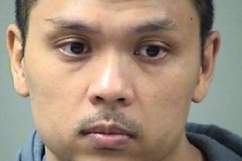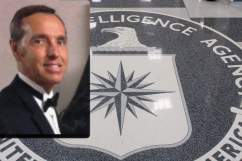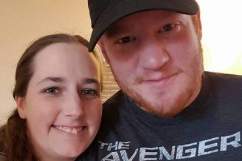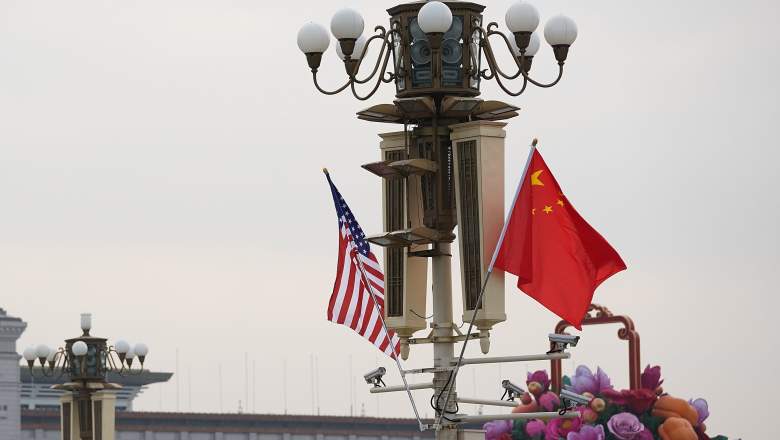
Getty American and Chinese flags are displayed in front of the Forbidden City on November 9, 2017 in Beijing, China.
A former CIA officer is accused of illegally possessing classified national defense information and is suspected of spying for China.
Jerry Chun Shing Lee, 53, was arrested Monday night at John F. Kennedy Airport in New York, federal authorities said in a press release. Lee, who is also known as Zhen Cheng Li, is also suspected of spying for China, though he is not facing any charges related to that allegation, NBC News reports. Sources told NBC News that Lee has long been under investigation for helping the Chinese government systematically dismantle the CIA’s spying operations in China.
Lee left the CIA in 2007 after more than a decade of service and had been living in Hong Kong prior to his arrest. According to The New York Times, Lee has been working for a well-known auction house while in Hong Kong.
Sources told The Washington Post that the FBI did not lure Lee back to the U.S., but he returned for his own reasons. The Times reports that the FBI learned Lee would be traveling back to the U.S. on Saturday and scrambled to file charges against him. An indictment was filed under seal on January 13. It is not known if Lee has hired an attorney and he could not be reached for comment.
Here’s what you need to know:
1. Lee Is Suspected of Giving Information to China That Led to the Death or Imprisonment of About 20 American Agents, Sources Tell NBC News
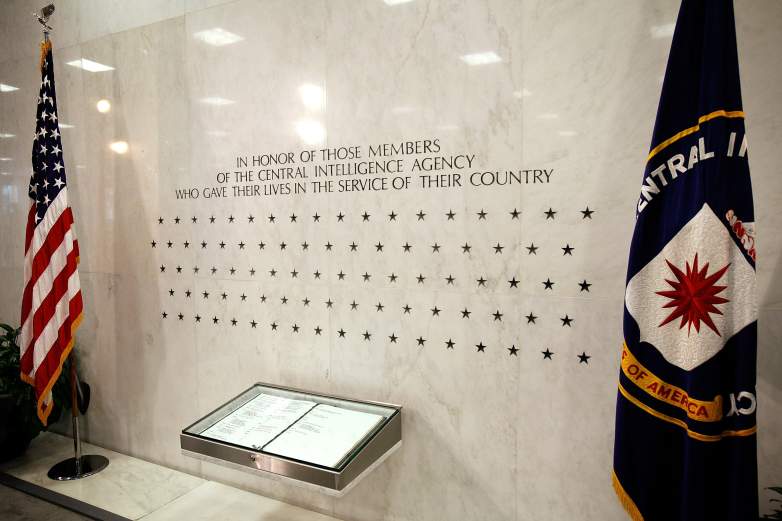
The Memorial Wall and the “Book of Honor” are seen in the lobby of the Original Headquarters Building at the Central Intelligence Agency headquarters February 19, 2009 in McLean, Virginia.
Sources told NBC News that Jerry Lee is suspected of funneling information to China that caused the deaths or imprisonment of about 20 American agents.
The New York Times reported last May that the Chinese government began to take apart the CIA’s spying operation in 2010, crippling the American intelligence gathering efforts there. Authorities have been investigating what led to the intelligence breach, which the Times called the worst in decades, with some believing a mole within the CIA had betrayed the U.S, while others thought the Chinese had hacked the covert system the CIA used to communicate with its sources.
According to NBC News, a FBI Task Force has been targeting Lee for several years, and have made multiple attempts to incriminate him through undercover operations. They also brought Lee in for a confrontational interview at which he denied being a spy, sources told NBC News.
Sources told NBC News that it is possible that there was a hack, but that it is also clear that Lee was spilling secrets to China.
According to The Washington Post, “People familiar with the matter said that Lee’s arrest would be greeted as cause for celebration among current and former CIA officials. But they said it would be hard to prove in court that Lee had provided the information that proved so damaging to the agency’s operations.”
2. The FBI Says They Found Small Books Containing Handwritten Notes That Included Classified Info, Including True Names of Assets & CIA Employees & Locations of Covert Facilities
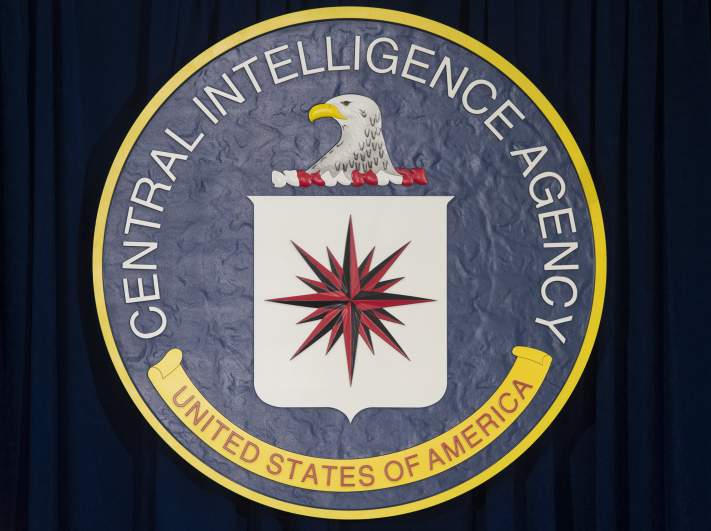
The seal of the Central Intelligence Agency (CIA) is seen at CIA Headquarters in Langley, Virginia, April 13, 2016.
Jerry Chun Shing Lee’s arrest stems from two searches the FBI conducted in 2012 when Lee returned to the U.S. from Hong Kong with his family. The court-authorized searches occurred at hotel rooms where Lee was staying in Hawaii and Virginia, according to prosecutors.
The agents “found that Lee was in unauthorized possession of materials relating to the national defense. Specifically, agents found two small books containing handwritten notes that contained classified information, including but not limited to, true names and phone numbers of assets and covert CIA employees, operational notes from asset meetings, operational meeting locations and locations of covert facilities.”
According to NBC News, the FBI lured Lee back to the United States in 2012 with a phony job offer and then searched his luggage and hotel rooms. No charges were filed at that time and Lee returned to Hong Kong in 2013 after living in Virginia for about a year.
On August 11, 2012, Lee and his family were observed by FBI surveillance teams while they were staying at a hotel in Honolulu. They stayed there until August 14. While there, “a court-authorized search of Lee’s Honolulu hotel room and luggage was conducted. Photographs were taken documenting items in Lee’s possession. A similar search occurred in Fairfax, Virginia, on August 15, while Lee and his family were staying at a hotel there.
The FBI said the searches uncovered Lee was in unauthorized possession of materials relating to the national defense, including classified information, secret information Top Secret information that “could cause exceptionally grave damage to the national security of the United States”:
A review of photographs taken during the August 13, 2012, search in Hawaii and the August 15, 2012, search in Virginia revealed that, during his stay in both hotels, LEE possessed two small books (the “books”) best described as a datebook and an address book. Each book contained handwritten notes. During both searches the books were located inside LEE’s luggage in a small, clear plastic travel pack.
The photographs of the books were reviewed by a CIA classification authority who determined that the books contained classified information. The datebook contained approximately forty-nine pages. Only pages with writing were photographed. The datebook contained handwritten information pertaining to, but not limited to, operational notes from asset meetings, operational meeting locations, operational phone numbers, true names of assets, and covert facilities. The address book contained approximately twenty-one pages. The address book contained true names and phone numbers of assets and covert CIA employees, as well as the addresses of CIA facilities. The CIA classification authority determined that the books contained classified information, up to and including Secret information and, in at least one instance. Top Secret information, the disclosure of which could cause exceptionally grave damage to the National Security of the United States.
According to court documents, “Classified cables that LEE wrote when he was a case officer, which describe his interactions with assets and information he learned from those meetings, and for which he was the derivative classification authority, contain much of the information reflected in the books.”
You can read the affidavit here or below:
Lee had a Top Secret security clearance and signed numerous non-disclosure agreements during his years working with the CIA, according to court documents.
During the time Lee spent living in Virginia, the FBI said he remained in possession of the two books found during the Hawaii and Virginia searches, according to court documents. He met with former CIA colleagues and other government employees and remained in contact with those individuals while he was living in the U.S.
“Neither during these meetings nor other opportunities while in northern Virginia, did Lee ever
surrender or return the books to appropriate U.S. Government officials, as required under the
NDAs he signed,” the FBI said in court documents. “Nor, in communications with former CIA colleagues and other U.S. Government officials, did he mention that he was in possession of the books. Additionally, Lee was interviewed by FBI agents on five separate occasions in or about May and June 2013 and never suggested that he possessed these books.”
3. Lee, a Naturalized U.S. Citizen, Served in the U.S. Army From 1982 to 1986 Before Attending Hawaii Pacific University
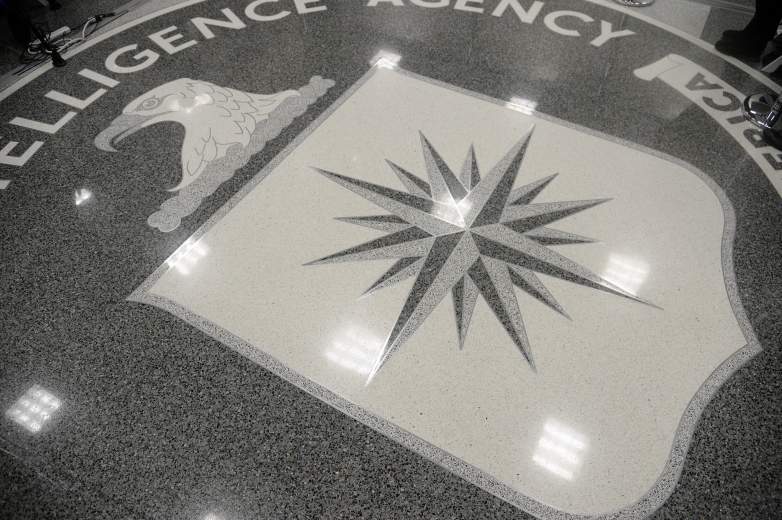
The logo of the CIA is seen during a visit ofUS President Donald Trump the CIA headquarters on January 21, 2017.
Jerry Lee is a naturalized U.S. citizen, according to court documents. He served in the U.S. Army from 1982 to 1986. Further details about his military service were not immediately available.
After leaving the Army, Lee graduated from Hawaii Pacific University in 1992 with a bachelor’s degree in international business management. He then earned a master’s degree in human resources management a year later, according to court documents.
Public records show that Lee lived in Fairfax, Virginia, before moving to Hong Kong. He has also lived in Harbor City, California, and Tokyo, Japan. His parents, Robert Earl Lee and Emma Lee, who are both deceased, lived in Jackson, Mississippi, but it is not clear if that is where he grew up.
4. He Joined the CIA in 1994 & Had Top Secret Clearance While Working as a Case Officer
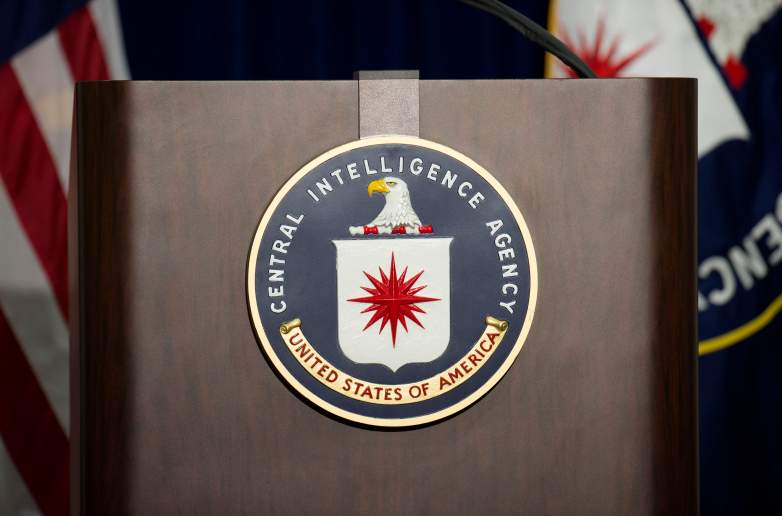
GettyThe CIA logo on a lectern.
Jerry Chun Shing Lee began working for the CIA in 1994 as a case officer. According to court documents, as a case officer, Lee was trained in, “methods of covert communications, surveillance detection, recruitment of assets, handling of assets, payment of assets, operational security, and documenting, handling and securing classified material.”
Lee’s employment in the CIA included various overseas positions and locations, all of which required Top Secret security clearance, according to court documents. He left the CIA in 2007 and his security clearance was terminated at that point.
“In addition to Lee’s Top Secret clearance, he maintained sensitive compartmented information (SCI) access to various sensitive programs. To obtain access to these programs, Lee was required to receive and did receive numerous security clearance briefs during his employment. To acquire his security clearance, Lee signed a life-time binding non disclosure agreement,” according to court documents.
He served in China as a case officer during his time in the CIA, according to the New York Times. Those who knew him told The Times that he left the agency because he became disgruntled after his career plateaued.
Lee is the second former CIA officer to be charged with a federal crime in the past year. Kevin Patrick Mallory, 60, was arrested in June and charged with providing classified information to China and lying to investigators.
5. Lee, Who Is Not Expected to Face Espionage Charges, Faces Up to 10 Years in Prison if Convicted
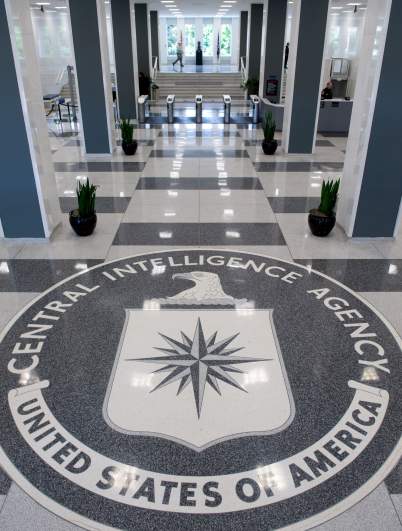
The Central Intelligence Agency (CIA) logo is displayed in the lobby of CIA Headquarters in Langley, Virginia, on August 14, 2008.
Lee made his initial court appearance Tuesday in the Eastern District of New York. The case was filed in the Eastern District of Virginia. He is not contesting extradition to Virginia. He was charged with unlawful retention of national defense information.
The FBI said in court documents that, “Having unauthorized possession of the books, which contained documents, writings, and notes related to the national defense, LEE willfully retained the two books and failed to deliver the materials to an officer or employee of the United States entitled to receive them, in violation of 18 U.S.C. § 793(e).”
He faces up to 10 years in prison if convicted.
“Actual sentences for federal crimes are typically less than the maximum penalties. A federal district court judge will determine any sentence after taking into account the U.S. Sentencing Guidelines and other statutory factors,” prosecutors said.
“Dana J. Boente, Acting Assistant Attorney General for National Security and U.S. Attorney for the Eastern District of Virginia, and Andrew W. Vale, Assistant Director in Charge of the FBI’s Washington Field Office, made the announcement (of the charges),” according to a press release from federal authorities. “Assistant U.S. Attorney Neil Hammerstrom and Deputy Chief Elizabeth Cannon of the National Security Division’s Counterintelligence and Export Control Section are prosecuting the case.”
Lee is not expected to face espionage charges, NBC News reports. That federal offense carries up to life in prison or the death penalty. Sources told the news network that it is not clear if federal authorities are not seeking the espionage charge because they do not have the evidence or because they do not want to air secrets in an open courtroom.

